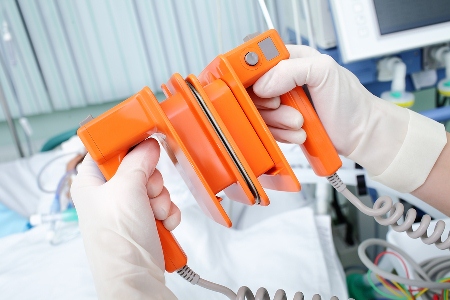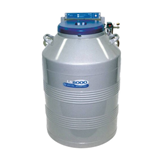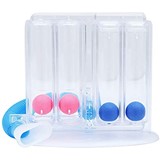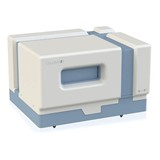It kills between 23,000 and 33,000 Australians each year, more than breast cancer, shootings and road crashes combined. That's about two busloads of people dying every day.
For these reasons the Cardiac Arrest Survival Foundation, Australia's only charity dedicated to reducing needless deaths from out-of-hospital cardiac arrests, has declared "Shoctober" to be defibrillator awareness month.
Defribrillator proximity
A sudden cardiac arrest away from medical help is a frightening prospect. In thousands of recorded incidents across the globe, one factor has proven critical to improving chances of surviving a sudden cardiac arrest: the proximity of a defibrillator.
Automated External Defibrillators (AED) provide automated heart rhythm analysis, voice commands, and deliver a shock. When the heart stops beating, an AED can shock the heart back to normal rhythm.
But every minute that passes without a heartbeat reduces the chance of surviving by ten per cent. Unfortunately, research shows about 75 per cent of sudden cardiac arrests happen away from a hospital, with a survival rate of just 6 per cent. Increasingly, the time taken for an ambulance to reach you through traffic means help may arrive too late.
Yet there is scant distribution of defibrillators either at workplaces or in public spaces. And unfortunately, even when a defibrillator is present, there have been fatalities from malfunctioning or poorly deployed devices: US research has linked 1150 deaths to AED failures over 15 years.
In Australia, the number of deployed AEDs is unknown. A new organisation called the AED Deployment Registry believes however, that saving lives should not be left to chance. The AEDDR is lobbying for improved access to defibrillators in workplaces and public spaces, such as on public transport, at schools, sports facilities and in shopping centres.
Proper deployment guidelines
Guidelines for the proper deployment of defibrillators known as The Defibrillator Deployment Guidelines are available on the AEDDR website.
Independent research on Sydney Trains published during August 2014, found 14 lives were saved over three years thanks to a fully-monitored automated external defibrillator system. Key to this success was that the defibrillators were fully monitored, and were therefore available and working properly at the crucial moment.
Additionally, two thousand employees were trained in CPR and use of a defibrillator. The program was managed by Sydney-based group Cardiac Responder – a sponsor of the Cardiac Arrest Survival Foundation – which has established similar networks for Qantas and other corporations alert to the risk of cardiac arrest in workplaces and public spaces. Their service includes monitoring and maintenance of defibrillators and targeted training of staff.








-160x160-state_article-rel-cat.png)












-160x160-state_article-rel-cat.png)


